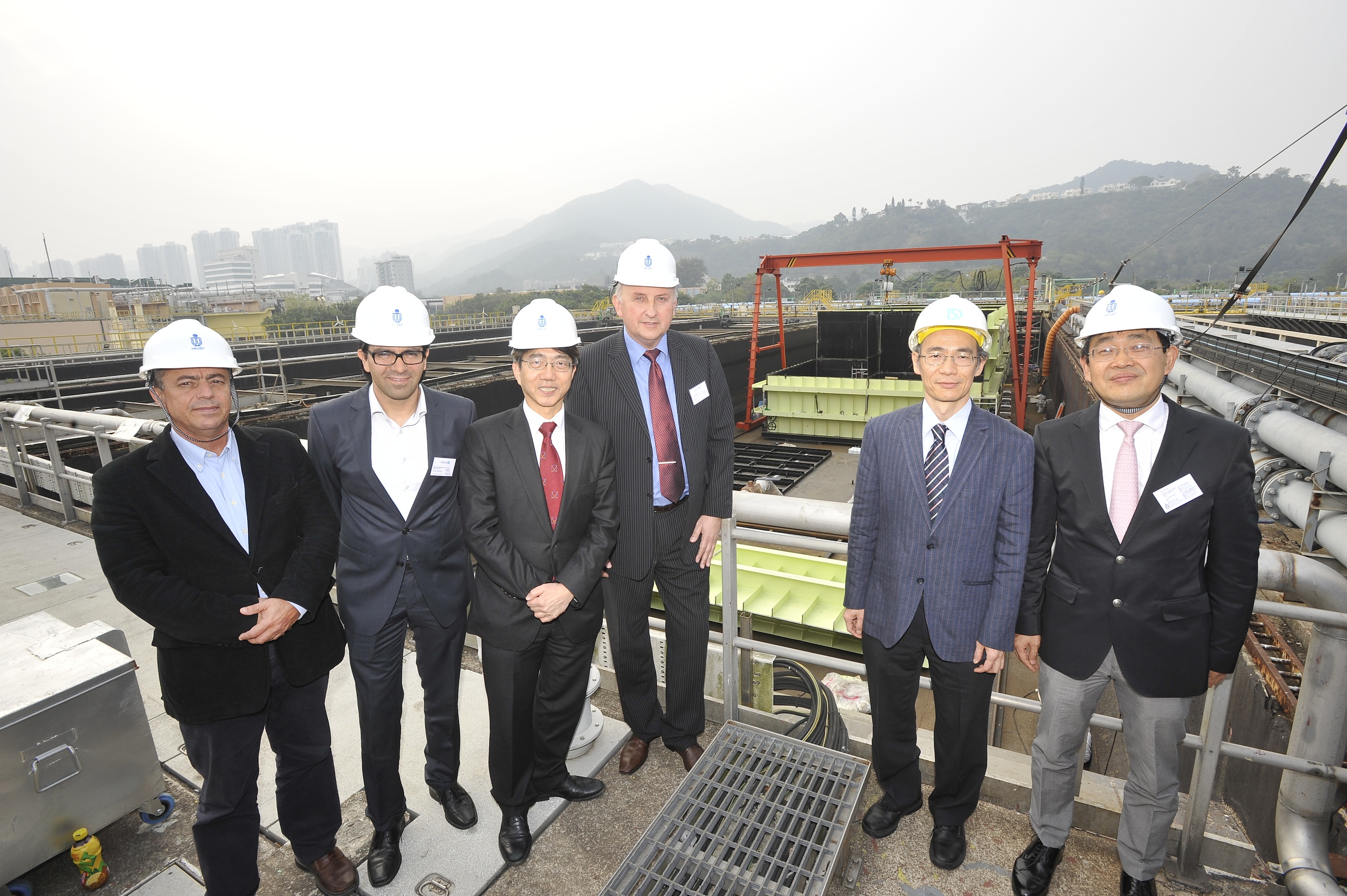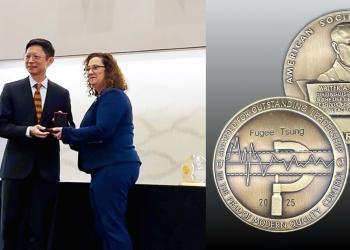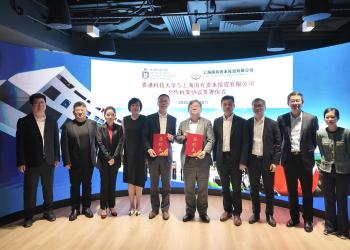HKUST and UNESCO-IHE Partnership to Apply HKUST-developed Sewage Treatment Technologies to tackle Water Scarcity in Cuba
The UNESCO-IHE Institute of Water Education (UNESCO-IHE) formed a partnership with the Hong Kong University of Science and Technology (HKUST) today under an international consortium to undertake a three-year water-saving project, including the adaptation of HKUST's innovative urban water management system for Cuba.
Hong Kong's seawater toilet flushing system saves huge amounts of freshwater and energy daily. "Leveraging Hong Kong's unique seawater flushing system, we have developed a novel, energy-efficient and low carbon sewage treatment technology," said Prof Guanghao Chen, Department of Civil and Environmental Engineering at HKUST. "The ‘Sulphate Reduction, Autotrophic Denitrification and Nitrification Integrated (SANI) Process' can eliminate 90% of sewage sludge production, and reduce sewage treatment costs by 50%, space requirements by over 50%, and cut down greenhouse gas emissions by 35%."
Prof Damir Brdjanovic, Head of the Environmental Engineering and Water Technology Department, UNESCO-IHE said: "Climate change is worsening the water shortage problem in the world. The innovative seawater-based treatment technologies developed by HKUST is one of the most energy efficient and economical ways for water-saving in coastal cities and islands around the world. We are pleased to bring this new urban water management concept to Cuba with help from HKUST and collaboration of local Cuban partners."
Prof Joseph Lee, Vice-President for Research and Graduate Studies of HKUST, said that working with UNESCO-IHE on this valuable project showed the significance of HKUST's research and development contributions to global water management and environmental protection. He said: "In addition to the Cuba project, under the collaboration we intend to set up a joint postgraduate program on water and the environment, a joint educational and training center for water professionals, and a HKUST and UNESCO-IHE joint research center on sustainable water infrastructure."
Prof Orestes Gonzales of Instituto Superior Politécnico "José A Echeverria" (CUJAE) and the leader of the Cuban delegation added: "Water is mankind's most precious resource, but the increasing human population and unpredictable climate means there may not be enough to go around. We will set up pilot systems covering seawater supply, wastewater reuse and the SANI process developed by HKUST, in Havana, with a view to easing pressure on our stressed water resources over the long term and for the generations to come."
The project, "+AGUA PARA TODOS (More Water for All)- Adapting to Climate Change and Mitigating Water Scarcity by Innovative Urban Water Management in Cuba", is funded by the European Union (project No. DCI-ENV/2010/247-301) and UNESCO-IHE. The project aims to alleviate water scarcity issues in Cuba through the introduction of innovative practices, including decreasing the demand for freshwater, encouraging wastewater reuse, and use of seawater as secondary quality water in the urban environment.
The project, led by Dr Carlos Lopez Vazquez of UNESCO-IHE, includes the conversion of part of a tourist resort near Havana to seawater toilet flushing, reuse of wastewater for onsite irrigation, and use of the SANI Process for wastewater treatment, to serve as a showcase for other cities in Cuba. The HKUST research team will go to Cuba in the first quarter of 2014 for a site investigation and finalization of the design. Installation and commissioning of the system will be conducted in the second half of 2014. The system will then operate until 2016 to evaluate the processes and feasibility.
The UNESCO-IHE and Cuba research delegation, comprising the Instituto Superior Politécnico "José A Echeverria" (CUJAE), the Cuban National Institute for Water Resources (INRH), and the Cuban Food Industry Research Institute (IIIA), visited the world's first large-scale SANI Sewage Treatment Plant, which is under construction at Shatin Sewage Treatment Works of the Drainage Services Department in Hong Kong. The delegation also visited the seawater supply, saline sewage treatment and grey water reuse systems of the Water Supplies Department, the Drainage Services Department, and the Hong Kong International Airport.
A research and development collaboration agreement was signed between HKUST and UNESCO-IHE during the Shatin Sewage Treatment Works visit. All involved believe that the SANI demonstration plant in Cuba is just the beginning of the internationalization of novel urban water management approaches developed by HKUST and its partners.
The SANI Sewage Treatment Plant at Shatin Sewage Treatment Works is expected to become operational in mid-2014. The plant can handle 1000 m3/day wastewater on average. The pioneering system is jointly sponsored by the Drainage Services Department, the Innovation & Technology Fund and others. It has attracted sponsorship of HK$24.6 million, one of the largest research environmental projects in Hong Kong.
For media enquiries, please feel free to contact :
Ella Au Yeung
Tel: 2358 6306
Email: ellaauyeung@ust.hk










